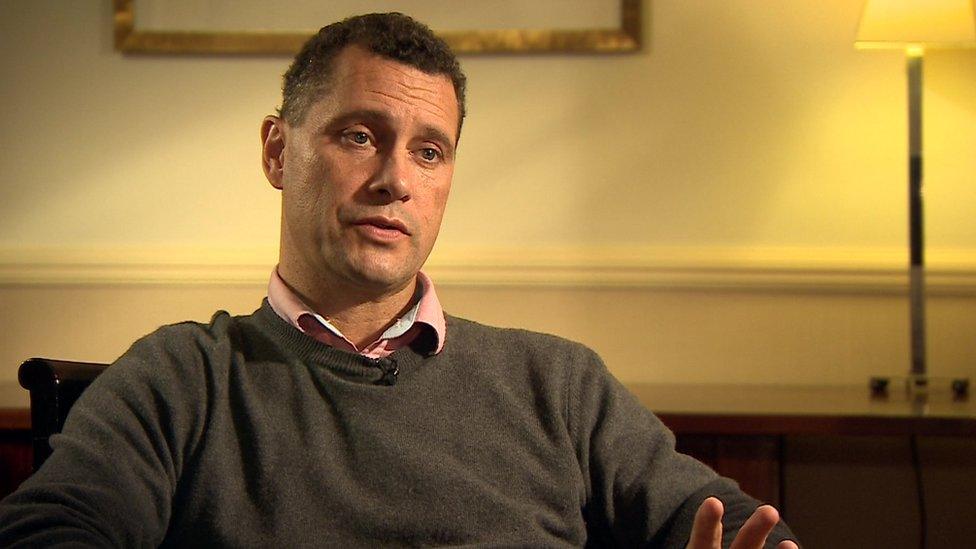PM vows to renew the 'British Dream' - but what is it?
- Published
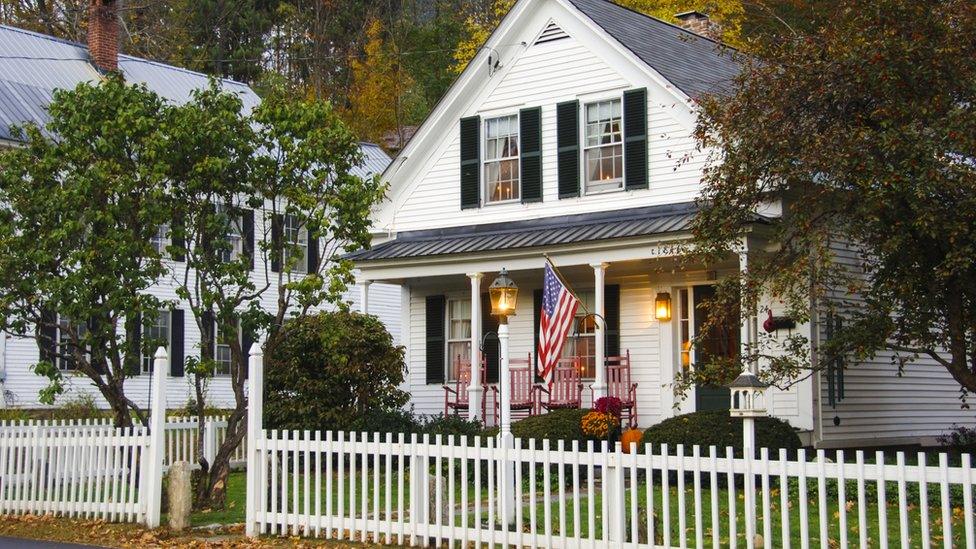
A white picket fence, a good job, a nice car and a prosperous future for our kids - most of us have heard of the American Dream.
But what about this side of the Atlantic?
Theresa May promised to bring back the "British Dream" during her Conservative Party Conference speech - or the idea that "each generation should do better than the one before it".
She said her domestic servant grandmother, who has three professors and a prime minister as grandchildren, was proof the dream could be real, but admitted it felt "distant" and "out of reach" for many people today.
Foreign Secretary Boris Johnson insisted Mrs May had set out a vision of "how to renew" the British Dream - but others watching the speech questioned what it was in the first place.
"The British Dream? What on earth is that? Never heard of it. What's in it? Unicorns?" David Hendy tweeted, external.
Others began offering their own interpretations of the dream.
Allow X content?
This article contains content provided by X. We ask for your permission before anything is loaded, as they may be using cookies and other technologies. You may want to read X’s cookie policy, external and privacy policy, external before accepting. To view this content choose ‘accept and continue’.
Allow X content?
This article contains content provided by X. We ask for your permission before anything is loaded, as they may be using cookies and other technologies. You may want to read X’s cookie policy, external and privacy policy, external before accepting. To view this content choose ‘accept and continue’.
Allow X content?
This article contains content provided by X. We ask for your permission before anything is loaded, as they may be using cookies and other technologies. You may want to read X’s cookie policy, external and privacy policy, external before accepting. To view this content choose ‘accept and continue’.
Despite the confusion, Mrs May is not the first politician to use the phrase.
Former UKIP MEP Steven Woolfe, who grew up on a council estate in Moss Side in Manchester, previously claimed he was "living proof" of the British Dream.
He described it as the chance to, external "succeed in your life, no matter your postcode, your gender or the colour of your skin".
It echoes the original idea behind the American Dream, which was coined by the writer James Truslow Adams in 1931.
He described the ideal of a land where life was "better and richer and fuller for everyone, with opportunity for each according to ability or achievement".
Who dreamt it up?
Mr Johnson himself said in 2005, while editor of The Spectator and a shadow minister, that the UK had been "hopeless" at communicating any sense of a British Dream - compared with the Americans.
"We've all got to be as British as Carry On films and scotch eggs, and falling over on the beach while trying to change into your swimming trunks with a towel on," he wrote in the Telegraph., external
Mr Johnson went on to say the first practical step was ensuring everyone in the UK speaks the same language.
"We should teach English, and we should teach in English. We should teach British history."
But Michael Howard, writing in the Guardian, external shortly after the 7 July 2005 bombings in London, saw the dream differently.
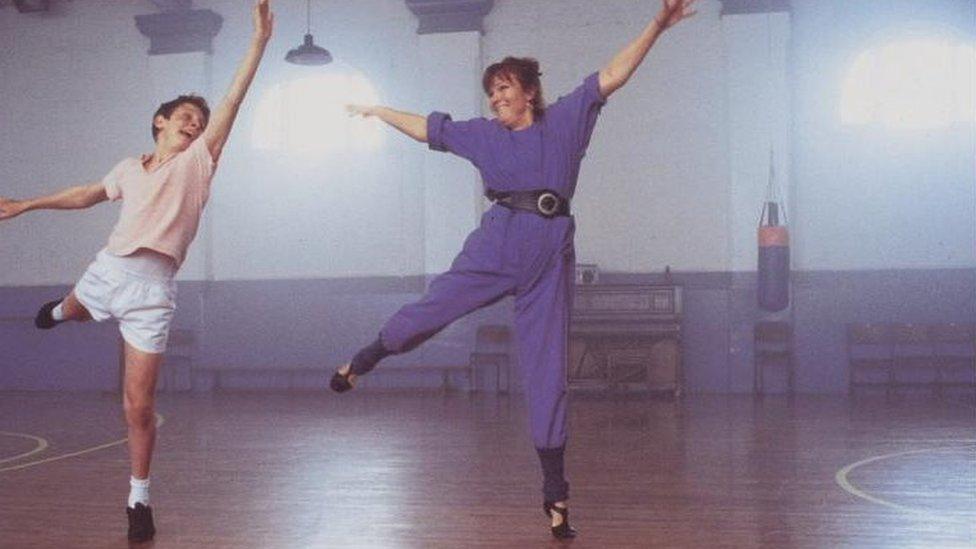
The success of fictional ballet dancer Billy Elliot has been likened to the British dream
The then-Conservative Party leader thought it embodied the values of "decency, tolerance and a sense of fair play".
"We need to break down the barriers that exist in too many people's lives - and minds - that prevent or deter them from making a success of life," he said.
He nevertheless agreed with Mr Johnson that "no one" talked about a British Dream as they do in America.
Two years later, the academic Prof George Rodosthenous, a specialist in musical theatre, observed in a journal article, external that the British Dream was "a term which needs urgently a definition".
He was writing about the story of Billy Elliot - the fictional son of a coal miner who defies the odds to go to the Royal Ballet School in London - and defined it as "the desire to do better than one's own parents, the forbidden desire to dream and the action of dreaming".
'British drawbridge'
Professor Pamela Cox, social historian at the University of Essex, said the British Dream has come to stand for home ownership, having a secure job and a living standard higher than your parents.
However, she believes it is "not a phrase that rolls off the tongue like the American Dream".
Prof Cox said the one thing that holds back the British Dream is what she calls the "British drawbridge".
"Elites are very good at pulling up the drawbridge behind them - things such as private schools and an inflated housing market.
"The British elite don't have much interest in sharing spoils. It's very much about keeping it for themselves.
"The American Dream is much more 'anyone can make it'. The British Dream is a different version - there is not a willingness for everyone to make it."
- Published4 October 2017
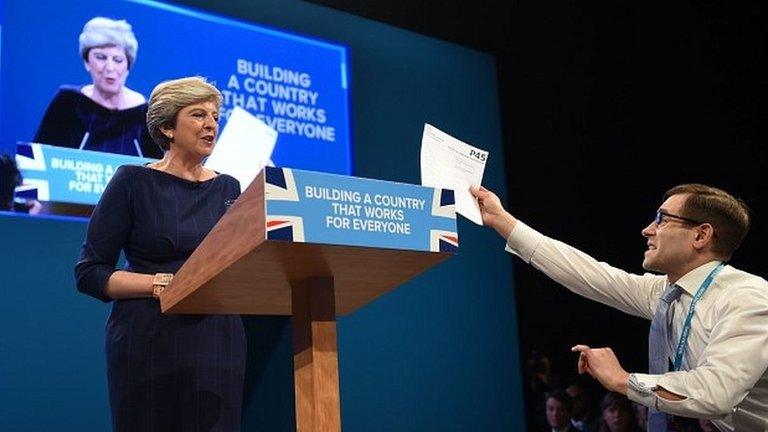
- Published4 October 2017
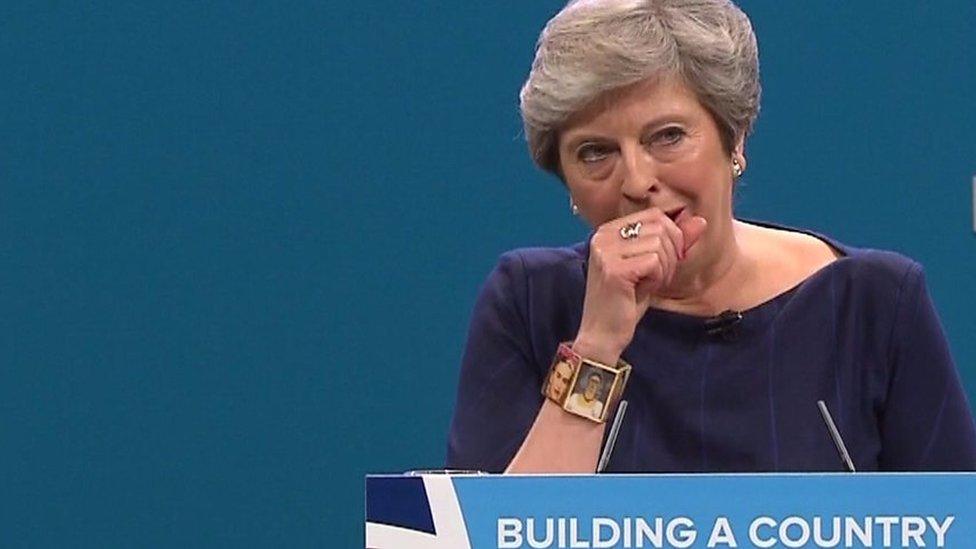
- Published17 October 2016
